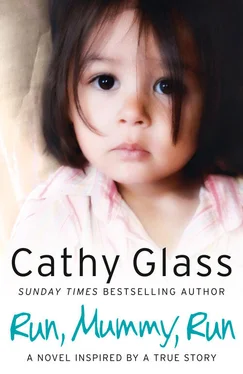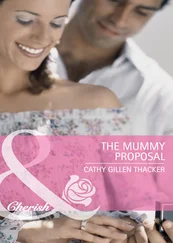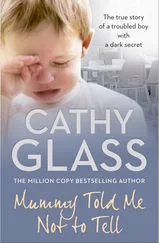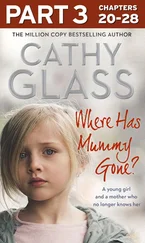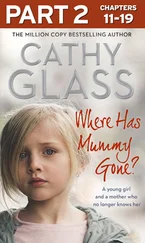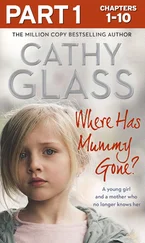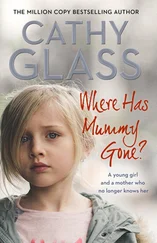Cathy Glass
Run Mummy Run

Copyright
This novel is entirely a work of fiction. The names, characters and incidents portrayed in it are the work of the author’s imagination. Any resemblance to actual persons, living or dead, events or localities is entirely coincidental.
HarperCollins Publishers Ltd. 1 London Bridge Street London SE1 9GF
www.harpercollins.co.uk
Copyright © Cathy Glass 2011
Cathy Glass asserts the moral right to be identified as the author of this work
A catalogue record for this book is available from the British Library
All rights reserved under International and Pan-American Copyright Conventions. By payment of the required fees, you have been granted the non-exclusive, non-transferable right to access and read the text of this ebook on-screen. No part of this text may be reproduced, transmitted, down-loaded, decompiled, reverse engineered, or stored in or introduced into any information storage and retrieval system, in any form or by any means, whether electronic or mechanical, now known or hereinafter invented, without the express written permission of HarperCollins ebooks
HarperCollins Publishers has made every reasonable effort to ensure that any picture content and written content in this ebook has been included or removed in accordance with the contractual and technological constraints in operation at the time of publication
Source ISBN: 9780007299287
Ebook Edition © APRIL 2011 ISBN: 9780007436644
Version: 2019-01-15
Title Page Cathy Glass Run Mummy Run
Copyright
Introduction Introduction It is said that the eyes are the windows of the soul – an opening, a gateway, to the person within. But what happens when the glass is cracked? Do we see the distortion, or wanting desperately to believe, ignore it, until it’s too late? To Aisha, the kindest, most gentle person I have ever known. Your only crime was to be too trusting, for having no wickedness in your own soul, how were you supposed to see it in others?
Chapter One
Chapter Two
Chapter Three
Chapter Four
Chapter Five
Chapter Six
Chapter Seven
Chapter Eight
Chapter Nine
Chapter Ten
Chapter Eleven
Chapter Twelve
Chapter Thirteen
Chapter Fourteen
Chapter Fifteen
Chapter Sixteen
Chapter Seventeen
Chapter Eighteen
Chapter Nineteen
Chapter Twenty
Chapter Twenty-One
Chapter Twenty-Two
Chapter Twenty-Three
Chapter Twenty-Four
Chapter Twtnty-Five
Chapter Twenty-Six
Chapter Twenty-Seven
Chapter Twenty-Eight
Chapter Twenty-Nine
Chapter Thirty
Cathy Glass
Moving Memoirs eNewsletter
Acknowledgements
About the Author
Also by Cathy Glass
About the Publisher
Introduction
It is said that the eyes are the windows of the soul – an opening, a gateway, to the person within. But what happens when the glass is cracked? Do we see the distortion, or wanting desperately to believe, ignore it, until it’s too late?
To Aisha, the kindest, most gentle person I have ever known. Your only crime was to be too trusting, for having no wickedness in your own soul, how were you supposed to see it in others?
Chapter One
Aisha touched the photograph and then moved it slightly to the right, trying to find its correct position. It had to sit at exactly the right angle, with the light streaming onto her face so that it showed her at her best. Mark liked it that way, he said it reminded him of the day when they had posed for the photograph – on the bench beneath the large oak tree. The sun had filtered through the leaves of the branches overhead, casting little diamond patterns onto the material of her dress. The two of them, with their arms entwined, taking their eyes from each other just long enough to smile into the lens. Mark had stopped a passer-by and had asked him if he would mind taking their photograph, then he’d given Aisha a framed copy, as a token of his undying love, he said.
Aisha inched the photograph left and right again and then saw a smudge, a fingerprint, on the glass. She picked it up and rubbed it hard with the sleeve of her cardigan until all trace of it had gone. She knew how Mark hated dirt, how angry he would become if he saw it. Mark said dirt was a sign of a slovenly and untidy mind, and that it was the inside of a person coming out and couldn’t be tolerated. It wasn’t Aisha’s fingerprint on the glass; oh no, she would never have been so careless. It must have been the inspector when he’d picked up the photograph and examined it, as though a clue might be concealed within, and then returned it to the bureau, only in the wrong position and leaving his fingerprint.
Aisha silently cursed the inspector for his thoughtlessness – she was going to have to go through the whole of the downstairs of the house, making sure he hadn’t touched and sullied anything else. She resented it as much as she resented the inspector’s intrusion in the first place – his self-assumed right to ring on the doorbell and then stand there with his WPC expecting to be admitted. It was a liberty, that’s what it was! Apart from which, didn’t he know she wasn’t allowed visitors when Mark was out? Didn’t he know the consequences for her if she was found out? He was playing roulette with her life.
Aisha moved away from the photograph and crossed the lounge to the armchair, which was backed hard up against the wall. She’d sat in that chair every night since the accident, every night watching and waiting, on guard for her life. She flopped down into the chair and rested her head back. She was exhausted. Everything seemed such an effort – walking, eating, washing, even thinking tired her to the point of collapse. She closed her eyes and tried to block out the inspector’s questions; so many questions with so few answers, they ran on and on like a tape recorder set on continuous, with no pause or stop button.
Where exactly had you been on the night of the accident, Mrs Williams? Where were you going? Was your husband away much on business? Would you describe your marriage as happy, Mrs Williams? On and on, making her head spin and her stomach cramp, nauseous with fear. And she’d seen their furtive glances when she’d taken time to answer a question, or stumbled, or repeated herself. She saw. Did they think she wouldn’t notice? That she was so blinded by grief that she couldn’t see? Or perhaps they thought the colour of her skin prevented her interpreting their looks and silence, as Mark had done.
Of course she had lied. There was nothing else she could have done, because to tell the truth would have sent her to prison and the children into care. And what would have been the point in that? It would have all been for nothing and they would be better off dead. Which might still be an option if the inspector persisted, and she couldn’t answer his questions, or sort out the chaos running through her head.
‘But what could I have told you, Inspector?’ she said out loud into the empty room. ‘What could I have told you that would have justified what I did? That I cried for so long and so hard that my tears fell like ice, and my heart crystallized, just like in the story of the Snow Queen that my father used to read to me as a child? And from my heart’s cold dense mass came a determination, a single-minded purpose – the will to survive – so that when I saw the opportunity I was able to seize it as the only escape. That is the truth, Inspector, honestly. Not that it’s going to do me any good.’
Читать дальше
